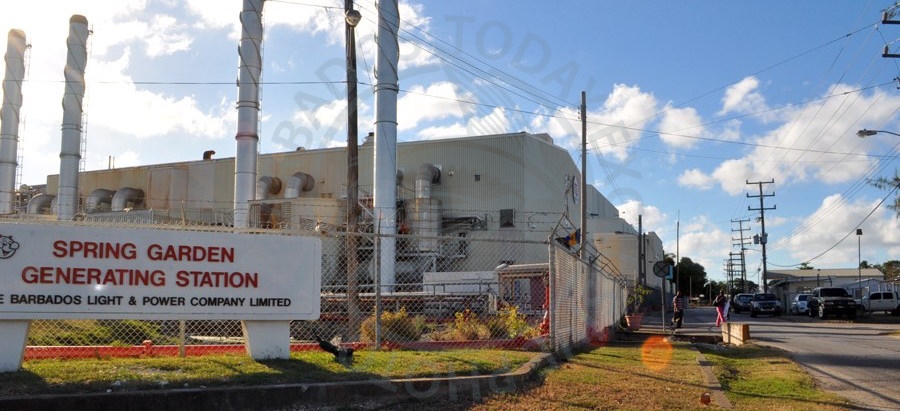For the last two days, schools and business have closed, households and commercial customers have been inconvenienced and left out of pocket, especially those with sensitive products like cooked food, raw meat, dairy produce and eggs in their refrigerators and freezers.
And if that was not bad enough, the water supply was sparse, creating yet another major inconvenience.
In a great display of irony, the culprit – nationwide blackouts, occurred in Energy Week, smack in the middle of Energy Month.
An exhibition highlighting renewable energy is scheduled for the end of this week. We know better but a casual observer or conspiracy theorist could easily be led to believe that power cuts triggered by dirty fuel were timed to promote the case for renewable energy.
Instead, it seems to be the case that a failure to replace by its expiry date is to blame.
The managing director of the Barbados Light and Power Company Limited, Roger Blackman, told a press briefing yesterday that the problem has stemmed from ‘contaminated fuel’ affecting the fuel pumps on the generators at its main Spring Garden generating plant, and that this had been going on for some time.
He said: “During the effort to restore power, some of our generators experienced challenges similar to what we experienced last week.
“We have fuel equipment issues on two of our largest generators, specifically the fuel pumps, and we have been having discussions with our fuel suppliers with relation to addressing that issue.”
He said some of that fuel is still “in the system”, but once that is used up, the new shipment of fuel, he has reassured, is contaminant-free, and that they had been testing samples of fuel from as far back as August to see whether these ‘agents’ were in it from as far back as then.
Up until now, we have heard no word from the supplier, Barbados National Oil Company Limited, confirming or denying these claims.
He also made the point that “right now about 50 per cent of our generating capacity has passed its retirement age, and the company has decided not to invest in similar equipment again owing to Barbados’ stated goal of becoming fossil fuel-free by 2030”.
Blackman’s comments, however, raise many questions. He said half the company’s generators are past their “retirement age”.
Now, how long ago was that, and does it make sense to keep “patching them up”, especially if they are now obsolete for the most part and replacement is the only financially prudent option?
Yes, we want to move towards renewable energy, but in the meantime, it would make sense to invest in new conventional equipment over the next decade, which can serve as a back up as we make the transition, or indeed if the new photovoltaic or wind-powered equipment has “teething problems”.
Beyond that, all machines have a maintenance schedule spelt out by their manufacturers in their owner’s manual or online. We ask if Light and Power stuck to this maintenance schedule and replace any defective parts when necessary?
And with most pieces of equipment, yes, sometimes breakdowns occur without warning, but generally speaking, faults manifest themselves in different ways.
As any vehicle owner knows, when a warning light on the dashboard flickers on and off, it is best to have the problem checked before everything shuts down entirely resulting in a costly repair job, or in a worst-case scenario, engine replacement.
Renewable energy is more than just putting up a solar panel or a wind turbine and hooking it up to a source of electricity with the hope it will generate power. That is, those devices need just as much, or even more, maintenance than conventional items.
Many years ago, in an early attempt at renewable energy, a wind turbine was set up at Lamberts in St. Lucy where it “rusted to bits” from the salt spray from the coast. How will we mitigate against that or any other problems that may crop up with the new technology?
It is also time Barbados Water Authority ramp up the installation of its own independent power supply for its pumping stations so that customers, who already have a multitude of problems with adequate water supply under normal circumstances, can at least get water when the electricity goes off.
We have set that ambitious goal of becoming fossil fuel-free by 2030. But should we put our trust in new technology on a national level when we cannot get the basics right?
Going towards renewable energy is a commendable goal, but we must bear in mind that sustainable renewable energy calls for an investment in sticking to manufacturer-recommended maintenance schedules and staying up-to-date on the technology.
Otherwise, we may find ourselves taking one step forward into the future, but ten steps back if we continue to maintain our ‘mash-up and buy back’ attitude towards any equipment we buy for such major activities as power and water generation.




